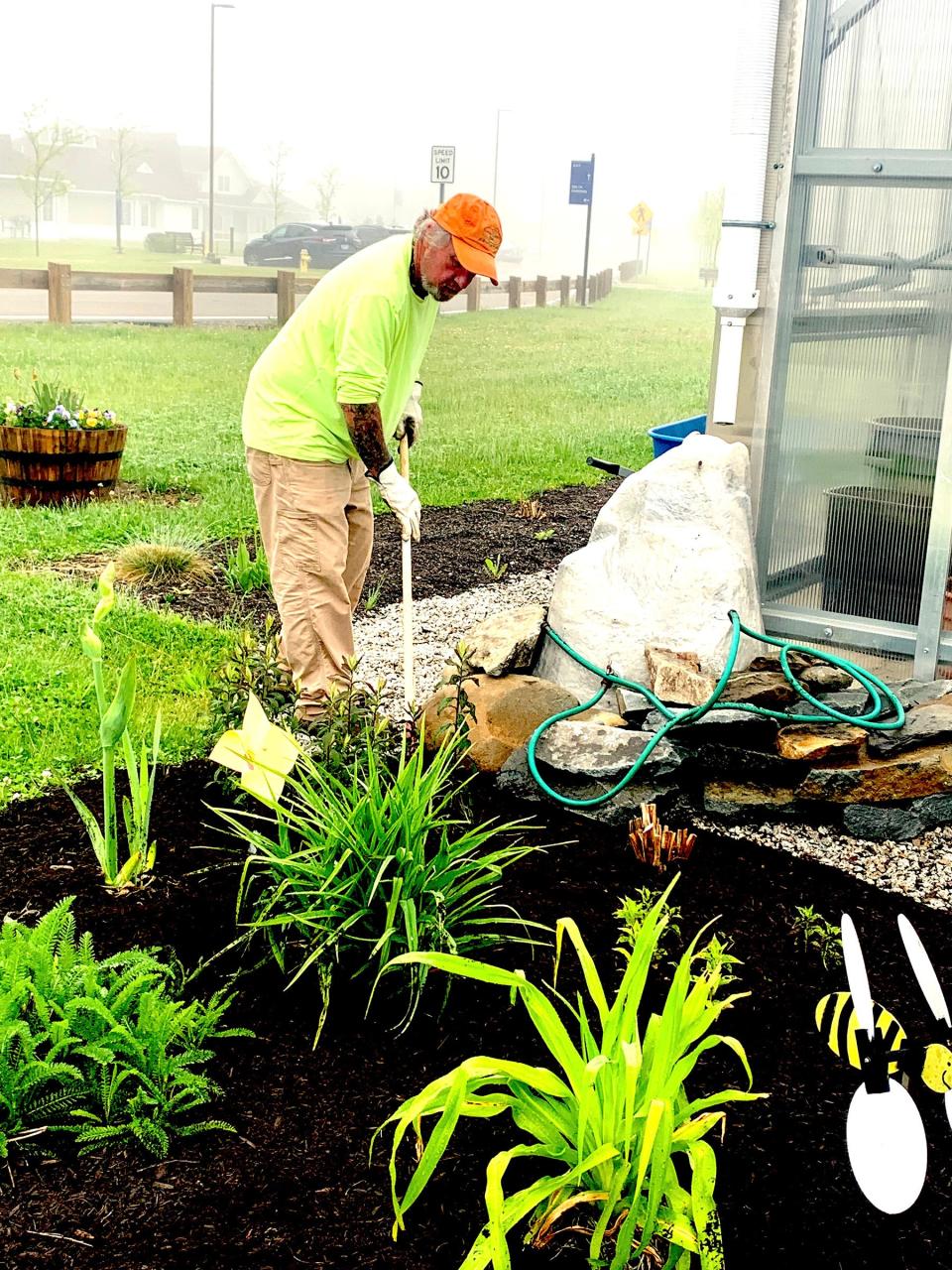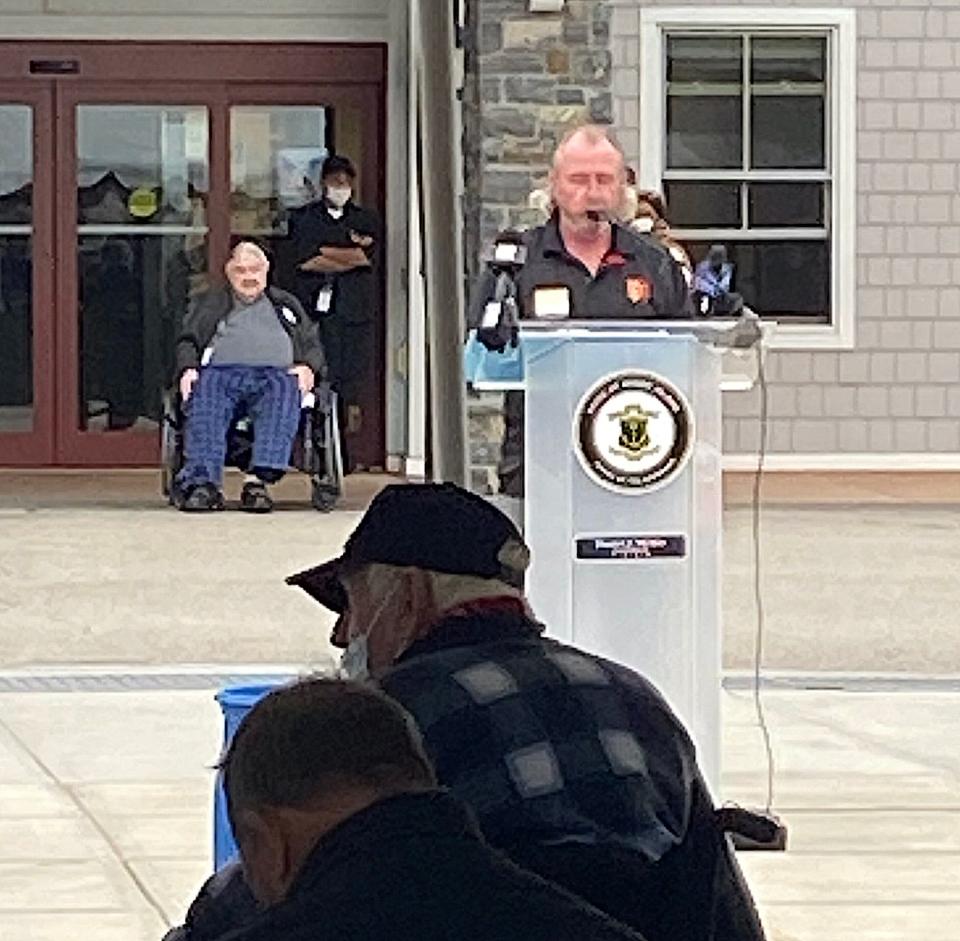Filing a claim for toxic exposure under the PACT Act
Editors Note: We know you've come to expect the regular column written by Frank Lennon "Veterans Voice" on Mondays. We've made the difficult decision to pause this feature through the end of the year. Past "Veterans Voice" columns can be found on our website, providencejournal.com.
Last month I wrote about filing a claim for toxic exposure under the PACT Act. On November 10, the VA reported they have already received some 113,000 claims.
The VA urges veterans to submit claims quickly. Joshua Jacobs, the VA’s senior adviser for policy, said, “We want to make sure veterans know about it and take full advantage of the benefits they've earned.”
The PACT Act seeks to provide an easier path to health care and benefits for veterans who served near open-air burn pits, which were used throughout the 1990s and the post-9/11 wars to burn garbage, jet fuel and other materials. Veterans diagnosed with cancer, respiratory issues and lung disease at young ages have blamed exposure to the toxic fumes from these pits, but the VA contended for years that there wasn’t sufficient evidence to support their claims.
Additionally, the law expands health care eligibility to post-9/11 combat veterans and adds 23 conditions related to burn pits and other toxic exposures to the VA’s list of service presumptions. To see a complete list of the new eligibilities, visit: https://www.va.gov/resources/the-pact-act-and-your-va-benefits/
That page will help answer your questions about what the PACT Act means. You can also call 800-698-2411 (TTY: 711). And you can file a claim for PACT Act-related disability compensation or apply for VA health care now.
Veterans Voice: VA expands list of cancers for disability care for burn pit victims
VA offers new toxic exposure screening
A new toxic exposure screening program is designed to document different kinds of exposures and provide guidance for next steps.
The screening makes your VA health-care team aware of any potential exposures to toxins during your military service.
After your screening, the VA will provide information about benefits, registry exams, and clinical resources. Being screened is separate from joining a VA environmental health registry, like the Airborne Hazards and Open Burn Pits registry.
Even if you don’t have concerns now, you might in the future. You’ll be screened at least once every 5 years. The screening is not part of the VA benefits claims process.
How to get screened
You can ask about the new toxic exposure screening at your next VA appointment. If you want to be screened sooner, contact the Providence VA Medical Center at (401) 273-9700 and ask to be screened by the Toxic Exposure Screening Navigator.
The screening isn’t diagnostic, but it identifies and records potential exposures.

Recognition of greenhouse at RI Veterans Home
On Veterans Day, Gov. Dan McKee, Sen. Jack Reed and other officials formally thanked volunteers from the URI Master Gardener Program for their efforts in funding and building the new greenhouse on the campus of the R.I. Veterans Home in Bristol.
Officials presented a certificate of appreciation to John Twomey, URI Master Gardener Project Leader, for his work in executing the project.
The $200,000 greenhouse, fully accessible to disabled veterans, was made possible by a major grant from the Champlin Foundation. The balance of the funding came from several smaller grants and a number of individual donations. Discounts on construction materials and pro bono labor helped finish the project, which was directed by the Garden Foundation of RI Inc. (formerly Master Gardener Foundation of RI).

Residents of the home benefit both therapeutically and educationally by growing plants for the patio beds that surround sections of the campus. The greenhouse gives the veterans the opportunity to work in inclement weather, and it is where many “starter” plants are nurtured for eventual use in landscaping elsewhere at the home.
Organizations, businesses, families and individuals who wish to help support the educational programs at the greenhouse can send checks to Garden Foundation of RI Inc, P.O. Box 1515, Kingston, RI 02881, ATTN RI Vets Home Project.
URI dedication: New facility open on campus to help veterans transition to college life
Rhode Islanders recognized by Naval Undersea Warfare Center
Team members Meagon Coffey and Russell Racette III of the Naval Undersea Warfare Center (NUWC) Division Newport’s Ranges, Engineering and Analysis Department, recently won the 2022 Department of the Navy Acquisition Excellence Awards (AEA) in the Business Innovation — Transaction or Affordability Focus category.
Coffey, a resident of Tiverton, graduated from URI with a BA in anthropology and a BS in applied mathematics. She also studied physics at the University of Hawaii, and environmental science at Hawaii Pacific University. She was awarded an MS in accounting from URI in 2020.
Newport resident Racette holds a BS in mechanical engineering from UMass Dartmouth, and is also credited as the inventor of a patented integrated cable navigation and control system.
Both were honored with the team at a Pentagon ceremony on November 3.
According to a statement from the NUWC public affairs office, “The award recognizes outstanding individuals and teams who have made exceptional contributions to promote competition and innovation throughout the acquisition lifecycle, ultimately delivering rapid, affordable, high performing capabilities to Naval Warfighters around the globe.”
This particular award recognized “ground-breaking approaches to award a complicated $410-million, 10-year, six range recapitalization and new construction contract,” which resulted in an estimated cost savings of at least $339 million. “These remarkable schedule efficiencies brought critical test and evaluation training to the fleet much faster than originally planned,” the award states. “By doing so the team’s forward thinking provided a clear and direct benefit to national security objectives, the fleet and warfighter.”
Complicating the challenge for the Rhode Islanders was that the project involved coordinating with others in Maryland, Florida, Hawaii, California and Washington. The coronavirus pandemic complicated the matter further; Coffey and Racette got the job done while in a full remote work status.
This article originally appeared on The Providence Journal: Filing a claim for toxic exposure under the PACT Act

